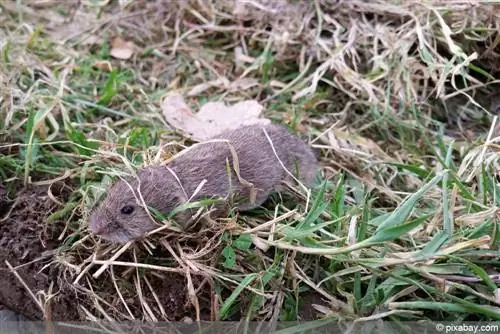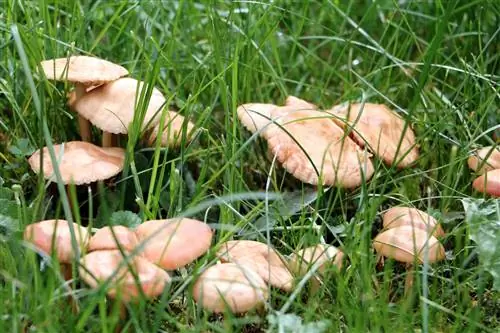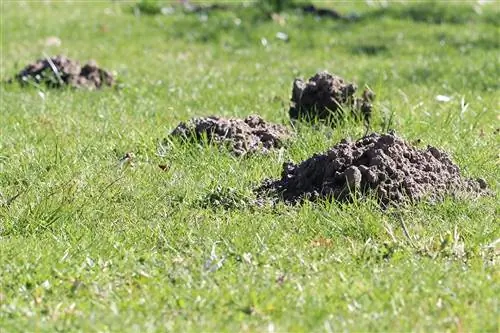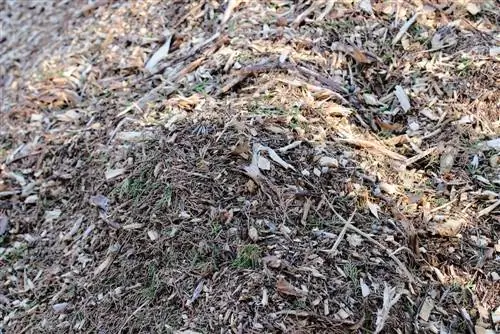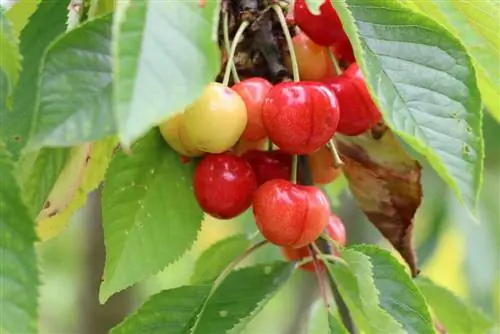- Author admin caroline@plants-knowledge.com.
- Public 2023-12-17 03:39.
- Last modified 2025-01-24 12:45.
Anyone who keeps their garden pest-free with a lot of love and care and believes that combating leaf diseases is enough is making a huge mistake. Mouse holes can be quite stressful for a gardener. At the latest when the harvest fails and underground passages and ditches appear on the lawn, it is time to catch the culprits. But how does this happen biologically? Are there ways to get rid of mice without harming them? With these tips the pests will run away.
Identifying mouse holes in the lawn
Before the gardener takes any measures to combat the troublemakers, he must be sure which animal it is. Moles, for example, are protected. In this case, it is only allowed to get rid of them naturally. If the gardener wants to catch the mole, he must release it unharmed in a suitable place. The easiest way to identify who has settled on the property is to look at the dwelling.
Note:
Rodents on the property not only have negative consequences. The little shrew, for example, leaves only minor damage and feeds primarily on insects. It is considered an effective pest controller for plants.
moles
- big hills
- central entrance
Voles
- open entrances
- no mounds
- rather inconspicuous
- often along garden paths and in vegetable beds
- barely eaten roots
Field mice
- small piles of earth at the entrance
- multiple entrances (one main entrance, side entrances)
- gutter-like walkways in the grass
- Eating marks on above-ground parts of plants
Tip:
Basically, prevention is always the best way to combat it. To protect the vegetable roots from being eaten away, it is recommended to incorporate a protective grid into the soil when planting. In addition, garbage cans or similar food sources should always be tightly closed. This also includes bird feeding places and compost.
Fighting mice in the garden
There are various ways to keep mice away from your garden. Scaring away is always the better option and chemicals should be avoided as a matter of principle.
Suitable plants
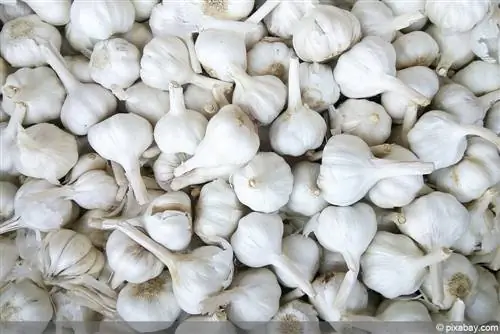
Mice have a very sensitive nose and a keen sense of smell. They often dislike aromatic scents from the plant kingdom. These include
- Cross-leaved Spurge
- Imperial Crown
- garlic
- Dill
- Thyme
- Savory
Experience shows that these plants only serve as prevention. A mouse rarely gives up on a fully developed passage system due to unpleasant smells in the environment.
Create disturbing background noise
Trade offers special mouse traps that use ultrasound to send out acoustic signals. Even though these noises are barely noticeable to humans, most products emit a regular beeping sound. Unfortunately, such a mousetrap only rarely helps. If the window is open in summer, it will only disturb the gardener's sleep.
Alternatively, he digs an empty glass bottle halfway into the ground. When the wind blows over the bottle opening, it creates a dull sound. Unfortunately, this method only works in quiet areas. On properties that border a busy road, the rodents are immune to high levels of background noise.
Use manure
Elderberry manure is ideal for irritating a mouse's delicate nose:
- collecting fresh elder leaves
- pour enough water over it
- ferment in the sun for several days
- fill into a watering can
- pour directly into the entrance of the mouse holes
- alternatively use buttermilk
Tip:
If you don't want to go to the trouble of making a manure, soak a cotton cloth in turpentine and stick it into the entrances of the mouse holes.
Regular scarifying
First of all, loose soil is very inviting for voles. If the gardener constantly destroys the tunnel system by constantly digging, the pests will quickly run away. Deep-rooted plants that compact the soil also make the location unsuitable.
Apply a layer of mulch
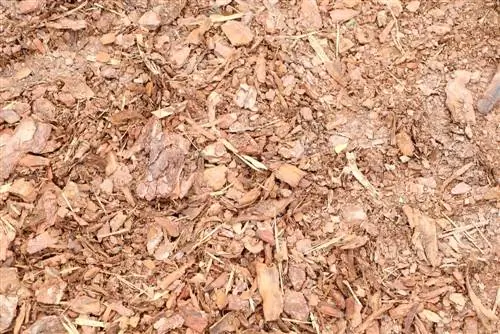
Although voles mostly stay underground, they start digging their holes from above. A thick layer of bark mulch or wood chips makes it difficult to penetrate the soil.
Attract predators
Owls and birds of prey pose a great danger to mice. Appropriate food offerings and perches attract the birds.
Note:
Although cats are considered a mouse's biggest predators, they don't prove to be very helpful. Often they just play with their prey, demand the praise of their master or mistress and in the end let the mouse run again.
Pets
Who wants to have their head trampled on? Goats and chickens disturb the peace of the mice and, if there is enough space, are probably the most natural way to make the uninvited guests flee. It should help to place used cat litter in the garden. The rodents smell a stray cat.
Note:
A single measure to combat mice usually only achieves short-term success or only helps to a limited extent. Since the above measures are purely organic strategies, the gardener can confidently combine them for greater chances of success.
Help from specialist retailers
There are a few biological remedies available commercially that promise a longer effect than the home remedies mentioned. For example, calcium carbide. However, procurement is more expensive. Castor oil, which enters the corridor system using gas cartridges, also sticks to the walls and leaves an unpleasant smell. This prevents the voles from finding something to eat underground and then running away.

